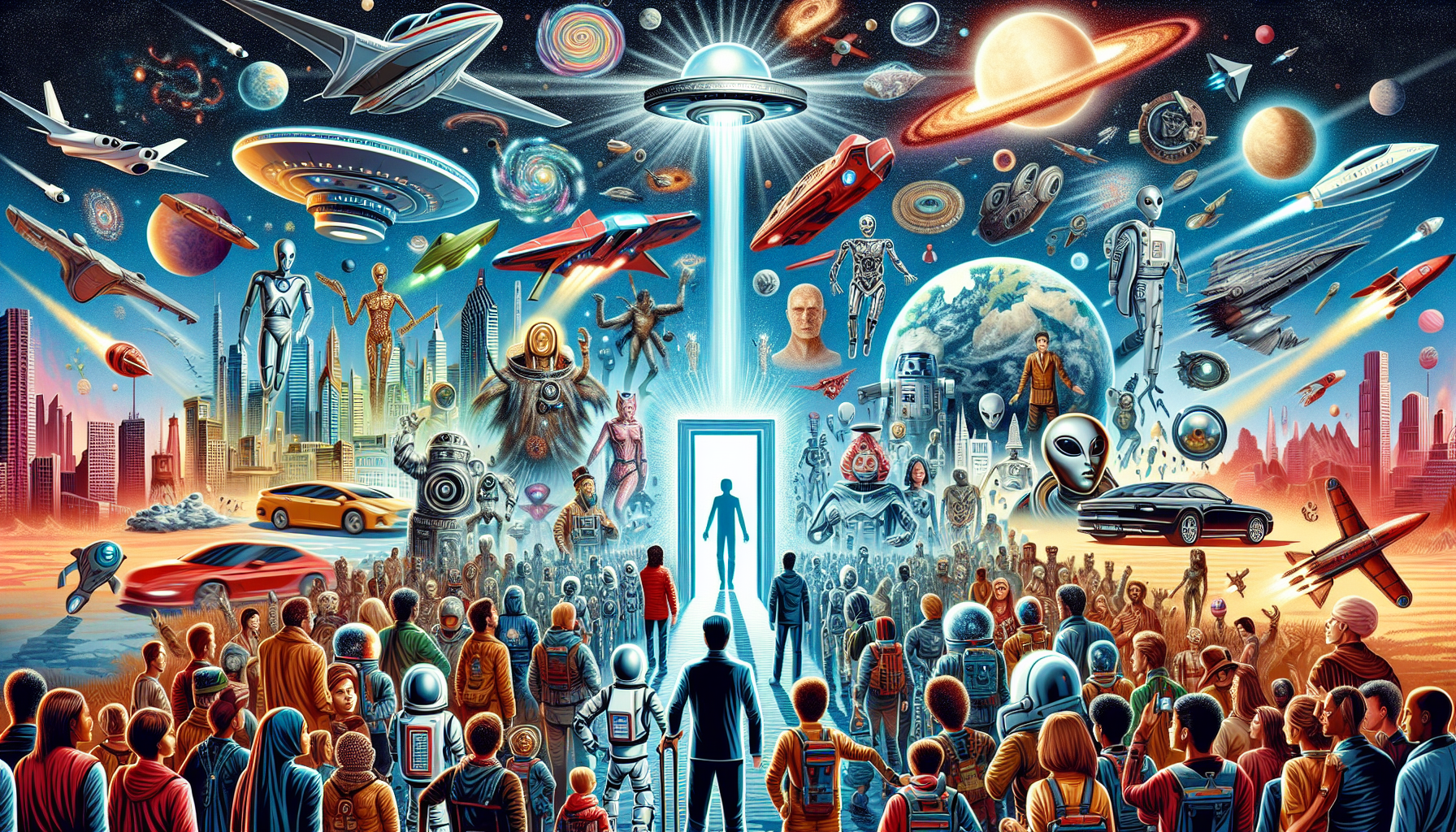
Science fiction, often referred to as sci-fi, captivates audiences by exploring imaginative and futuristic concepts. By delving into complex scenarios involving advanced technologies, extraterrestrial life, and alternate realities, sci-fi often raises profound questions about humanity, society, and the universe. Here are five common themes frequently explored in sci-fi films and television series.
1. Artificial Intelligence and Robotics
The theme of artificial intelligence (AI) and robotics is a cornerstone of science fiction. This theme explores the creation and evolution of intelligent machines, raising questions about consciousness, ethics, and the relationship between humans and technology. Classic examples include the film Blade Runner, where synthetic humans known as replicants grapple with their identity and purpose, and the television series Westworld, which takes a deep dive into the consequences of creating lifelike robotic beings. These stories often reflect our anxieties and aspirations regarding technological advancements and their potential impact on society.
2. Space Exploration and Colonization
Space exploration and colonization serve as a vast and compelling canvas for sci-fi narratives. Films like Interstellar and the series The Expanse depict humanity’s quest to explore, settle, and survive in the cosmos. This theme often tackles issues such as the survival of the species, the challenges of long-term space travel, and the political and ethical dilemmas of colonizing other planets. Through these stories, audiences are invited to imagine the possibilities and perils of venturing beyond our home planet.
3. Time Travel and Alternate Realities
The concept of time travel and alternate realities is another popular sci-fi theme. These narratives explore the consequences of tampering with space-time and parallel universes, often leading to complex and thought-provoking plots. Movies like Back to the Future and Looper explore the paradoxes and moral dilemmas of time travel, while TV series such as Stranger Things delve into alternate dimensions. These stories challenge our understanding of reality and often highlight the interconnectedness of past, present, and future.
4. Dystopian and Utopian Societies
Dystopian and utopian societies offer a stark examination of societal structures and human behavior. Dystopian narratives, like the films Minority Report and The Matrix, often depict oppressive regimes, societal collapse, or environmental devastation, serving as a cautionary tale of possible future downfalls. In contrast, utopian stories, though less common, present idealized societies, exploring the possibility of perfect or highly advanced civilizations. Series like Star Trek often merge elements of both, showcasing a hopeful future while still addressing significant contemporary issues.
5. Extraterrestrial Life and First Contact
The theme of extraterrestrial life and the prospect of first contact with aliens has fascinated audiences for decades. These stories range from hostile invasions, as seen in War of the Worlds, to more benign and philosophical encounters, such as in Close Encounters of the Third Kind or Arrival. Through these narratives, sci-fi often explores the unknown and the potential impact of encountering other intelligent life forms, highlighting themes of communication, coexistence, and the broader implications for humanity.
By employing these common themes, science fiction in film and television continues to challenge our imaginations and provoke critical reflections on the future. Whether through speculative technologies or hypothetical societal shifts, sci-fi remains a powerful genre for exploring the human condition and our place in the universe.






